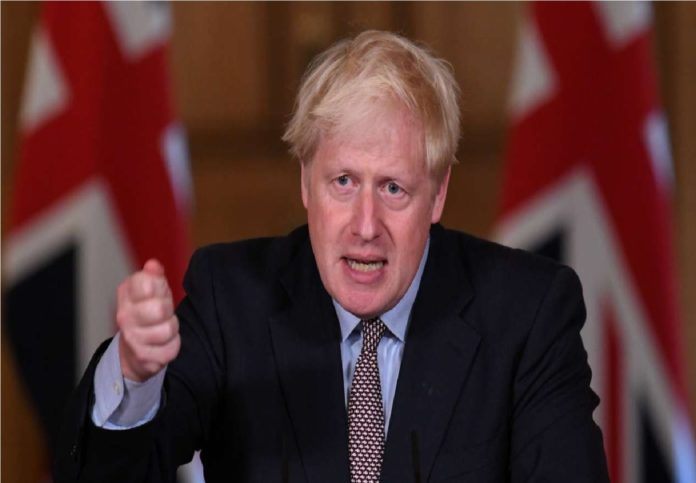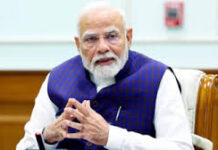New Delhi (NVI): British Prime Minister Boris Johnson has set out a four-step plan to ease coronavirus restrictions in England, expressing a hope that life could get back to normal by the end of June this year.
In a statement to the parliament, he paid tribute to the extraordinary success of the UK’s vaccination programme and the resolve of the British public in following the lockdown restrictions, which has helped to cut infection rates and reduce the spread of the virus.
“Supported by the increased protection offered by these vaccines, the government is able to slowly and cautiously begin to ease restrictions in all areas across England at the same time, guided at all stages by data, not dates,” he said.
Johnson outlined a gradual and cautious approach to lifting curbs in England, starting with the return of pupils to schools from March 8.
Non-essential retail and hairdressers will reopen from April 12. So will pubs and restaurants, though only outdoors.
Indoor venues such as theatres and cinemas, and indoor seating in bars and restaurants, are scheduled to open from May 17, when limited crowds will be able to return to sports stadiums.
It is also the earliest date Britons may be allowed foreign holidays.
The government is aiming for the lifting of all limits on social contact from June 21. However, it says the dates could all be postponed if infections rise.
The measures announced apply to England. Scotland, Wales and Northern Ireland all have slightly different lockdowns in place, with some children returning to class in Scotland and Wales on Monday.
The lifting of measures will take place with a minimum five-week gap, the Prime Minister said, allowing four weeks for the government to gather the appropriate data and one week to alert the public and sectors involved.
Johnson later told a Downing Street news conference that the coming spring and summer would be “seasons of hope, looking and feeling incomparably better for us all”.
He described the plan as a “one-way road to freedom” but said he could not guarantee it would be irreversible “but the intention is that it should be”.
It comes as the first data on the UK’s coronavirus vaccine rollout suggested it was having a “spectacular” impact on stopping serious illness.
The country has been in full national lockdown since January 4, after a new, more transmissible variant of coronavirus was discovered in southeast England.
So far, the UK has registered 4,138,233 cases of coronavirus with the number of fatalities caused due to the deadly contagion surpassing 1,20,000 in the country.
-CHK








